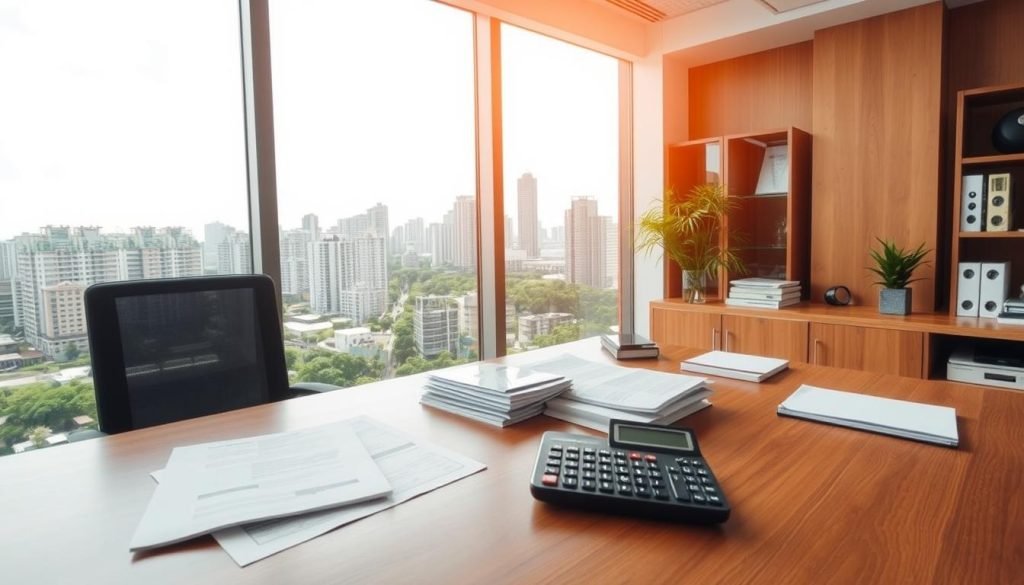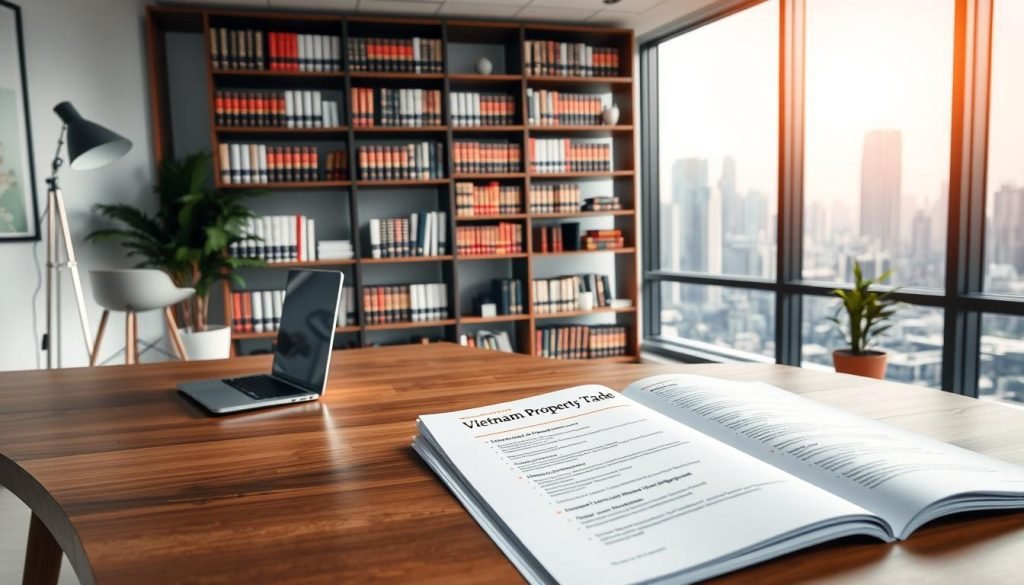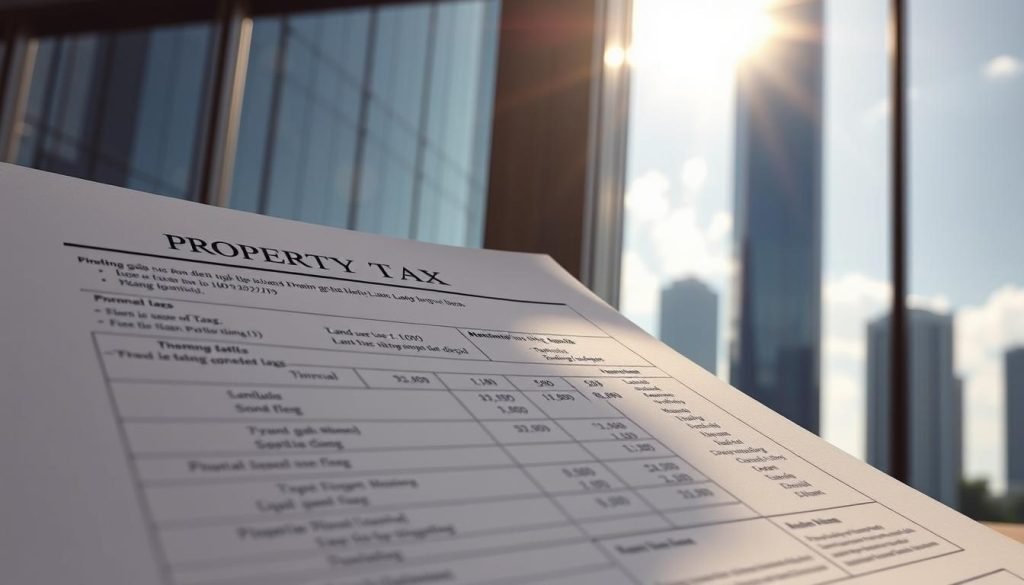What Taxes Do You Pay When Buying Property in Vietnam?

Buying property in Vietnam can be complex for foreigners. It’s key to understand the taxes involved.
The Housing Law, No.27/2023/QH15, lets foreign citizens buy real estate under specific rules. These rules start on August 1, 2024.
Knowing the different taxes is vital. It helps you follow the rules and avoid fines.
This article will explain the taxes you might face when buying real estate in Vietnam.
Key Takeaways
- Understanding the tax implications of buying property in Vietnam.
- The Housing Law No.27/2023/QH15 and its implications for foreign buyers.
- Types of taxes involved in buying real estate.
- Compliance and possible penalties for not following the rules.
- Help on navigating the tax landscape.
Understanding Property Ownership in Vietnam for Foreigners
Before investing in Vietnam, it’s key to know the property laws. Vietnam welcomes foreign investors with open arms. But, there are rules to follow.
Legal Framework for Foreign Property Ownership
The Vietnamese government has set rules for foreign property owners. You can own apartments and condos for up to 50 years. After that, you can renew for another 50 years. This helps attract foreign money while keeping things in check.
Types of Properties Foreigners Can Purchase
Foreigners can buy and own apartments and condos in Vietnam. It’s important to know the property’s legal status and any ownership limits. Also, remember the transfer fees involved in buying property. These fees are part of the costs you’ll face.
Things to keep in mind include:
- The maximum ownership period and renewal conditions
- The types of properties available for foreign ownership
- The legal and regulatory requirements for property transfer
Overview of Vietnam Property Taxes
Investing in Vietnamese real estate means knowing the tax rules. Both local and foreign buyers need to understand these. Vietnam’s property taxes cover different aspects of owning and selling property.
Tax System for Real Estate in Vietnam
The tax system includes Value-Added Tax (VAT), Personal Income Tax (PIT), and registration fees. VAT is charged on property sales or transfers. PIT applies to those who make money from property deals. Registration fees are paid when a property is registered in someone’s name.
Differences Between Local and Foreign Buyer Taxation
Local and foreign buyers face similar tax rules, but there are some differences. Foreign buyers might pay extra taxes or have unique tax rules for profit repatriation. Knowing these differences helps you deal with Vietnam’s property taxes better.
It’s wise to talk to a tax expert. They can help you follow all tax laws and reduce your tax burden when buying property in Vietnam.
Personal Income Tax on Property Transactions
If you own property in Vietnam as a foreigner, you must pay personal income tax on rental income. It’s key to know how this tax works for your property dealings. This helps with following the rules and planning your finances.
Tax Application to Property
Personal income tax (PIT) is applied to rental income from properties in Vietnam. The tax rate is 5% on the gross rental income. So, if you rent out your property, you must report this income and pay the tax.
Calculation Methods and Rates
The PIT calculation is simple: it’s 5% of the gross rental income. For instance, if your monthly rental income is $1,000, you owe $50 in PIT each month. You can deduct some expenses, but you need to document them and follow tax rules.
Filing Requirements for Foreigners
Foreign property owners must get a tax code and file tax returns. You’ll need to submit a tax return form and supporting documents like rental agreements and income proofs. Getting help from a tax expert is wise to make sure you meet all filing needs.
| Filing Status | Tax Rate | Filing Frequency |
|---|---|---|
| Resident Foreigner | 5% on gross rental income | Quarterly |
| Non-Resident Foreigner | 5% on gross rental income | Annually |
This tax guide helps you understand your tax duties on property transactions in Vietnam. Remember, you should also know about any transfer fees when buying or selling property.
Value Added Tax (VAT) on Property Purchases
When you buy property in Vietnam, knowing about Value Added Tax (VAT) is key. VAT is charged on property sales in Vietnam. Knowing how it works can help you plan your purchase better.
When VAT Applies to Property Transactions
VAT usually hits new properties or those used for business. This includes new homes sold by developers. Knowing if VAT applies to your purchase is important to avoid surprises.
Current VAT Rates and Calculation
The standard VAT rate in Vietnam is 10%. But, the rate can change based on the sale details. For example, buying a new apartment might include VAT in the price. Always check your contract to see how VAT is handled.
VAT Exemptions for Certain Properties
Not every property sale has to pay VAT. Used properties or certain land rights might be exempt. Some sales might even get a lower VAT rate under certain rules. It’s smart to talk to a tax expert to see if your sale gets any breaks.

Registration Fees and Stamp Duty
To understand Vietnam’s property market, knowing about registration fees and stamp duty is key. When you buy property in Vietnam, you must pay registration fees. These fees are 0.5% of the property’s value.
Registration Fee Structure
The registration fee is a big part of buying property. It’s 0.5% of the property’s declared value. This might not always match the sale price. Knowing this helps you plan your budget better.
Stamp Duty Requirements
Stamp duty is another cost in property deals. It’s for documents that change property ownership. Make sure you meet the stamp duty rules to avoid legal problems.
Timeline for Payment
You need to pay registration fees and stamp duty on time after the deal. Sticking to the deadline is important. It helps avoid penalties and makes the deal go smoothly.
By following the rules on registration fees and stamp duty, you can have a successful property deal in Vietnam.
Land Use Fees and Annual Vietnam Property Taxes
As a property owner in Vietnam, you need to know about land use fees and annual property taxes. These costs are key to owning property and can change a lot. They depend on several factors.
Annual Land Use Tax Obligations
Land use fees apply to non-agricultural land. The tax rate changes based on where the land is and what it’s used for. For example, land for homes is taxed differently than land for businesses.
Non-Agricultural Land Use Tax
The non-agricultural land use tax is a big part of Vietnam’s property taxes. The tax rates vary by location. Urban areas usually have higher rates than rural ones.
Payment Procedures and Deadlines
It’s important to know how to pay land use fees and when to do it. The fees are paid once a year. Owners must pay by a certain date to avoid penalties.
| Land Use Type | Tax Rate | Payment Deadline |
|---|---|---|
| Residential | 0.5% | December 31st |
| Commercial | 1% | December 31st |
| Industrial | 1.5% | December 31st |
Knowing about these taxes is key for managing your property in Vietnam. For a detailed tax guide, talk to a tax expert. They can help you understand the rules and reduce transfer fees.

Working with Tax Professionals in Vietnam
To follow Vietnam’s tax rules, think about getting a tax expert. The tax system here can be tricky. A tax pro can guide you on tax rules, help with registration, and support with tax issues.
When to Hire a Tax Consultant
Get a tax consultant if you’re not sure about taxes on your property deal. They can explain your tax duties, like Personal Income Tax and Value Added Tax (VAT). They also help with tax planning and finding tax breaks.
Finding Reliable Legal Support for Property Purchases
To find good legal help, look for tax pros with Vietnam property tax experience. Ask friends, family, or your real estate agent for tips. Make sure to check the tax consultant’s credentials and reputation.
Cost of Professional Tax Services
The price for tax services in Vietnam varies based on the service and your tax situation. You might pay $500 to $2,000 for help with property taxes. While it’s an extra cost, the right tax pro can save you from big tax mistakes.
“A good tax consultant can save you from costly mistakes and ensure you’re in compliance with all tax regulations.”
Working with a tax pro ensures your Vietnam property taxes are managed well. This lets you relax and focus on your investment.
Navigating Property Taxes in Vietnam
When you buy property in Vietnam, knowing about taxes is key. You’ll face Value Added Tax (VAT), Personal Income Tax (PIT), and fees for registration and land use. These can change your investment’s cost. Knowing them helps you make smart choices.
Don’t forget about transfer fees when buying property in Vietnam. Following tax rules helps avoid fines. Getting advice from a tax expert or lawyer can guide you through Vietnam’s tax system.
Understanding property taxes in Vietnam helps you plan better. Stay updated and ask for help when needed. This ensures a smooth investment process.
FAQ
What are the taxes involved in buying property in Vietnam?
Buying property in Vietnam means you’ll face several taxes. These include value-added tax (VAT), personal income tax (PIT), and fees for registration and land use.
Can foreigners own property in Vietnam?
Yes, foreigners can buy and own certain properties in Vietnam. This includes apartments and condominiums. They can hold these properties for up to 50 years, with the option to renew for another 50 years.
How is personal income tax calculated on rental income from properties in Vietnam?
Personal income tax on rental income in Vietnam is 5% of what you earn. This applies to all rental income from properties.
What is the value-added tax rate for property transactions in Vietnam?
The standard VAT rate for property transactions in Vietnam is 10%. But, there might be cases where you get exemptions or lower rates.
How much is the registration fee for property transfer in Vietnam?
The registration fee for transferring property in Vietnam is 0.5% of the property’s value. This fee is a standard part of the process.
What are land use fees, and how are they assessed?
Land use fees are ongoing for property owners in Vietnam. They’re based on non-agricultural land. The rates depend on where your land is and how it’s used.
Why is it beneficial to hire a tax professional when dealing with property taxes in Vietnam?
Hiring a tax professional is very helpful. They can guide you on tax rules, help with registration, and support with other tax issues. This ensures you follow all the rules.
What are the benefits of understanding Vietnam’s property tax guide?
Knowing Vietnam’s property tax guide helps you follow tax laws. It helps you avoid fines and makes planning your finances easier when buying or owning property in Vietnam.







